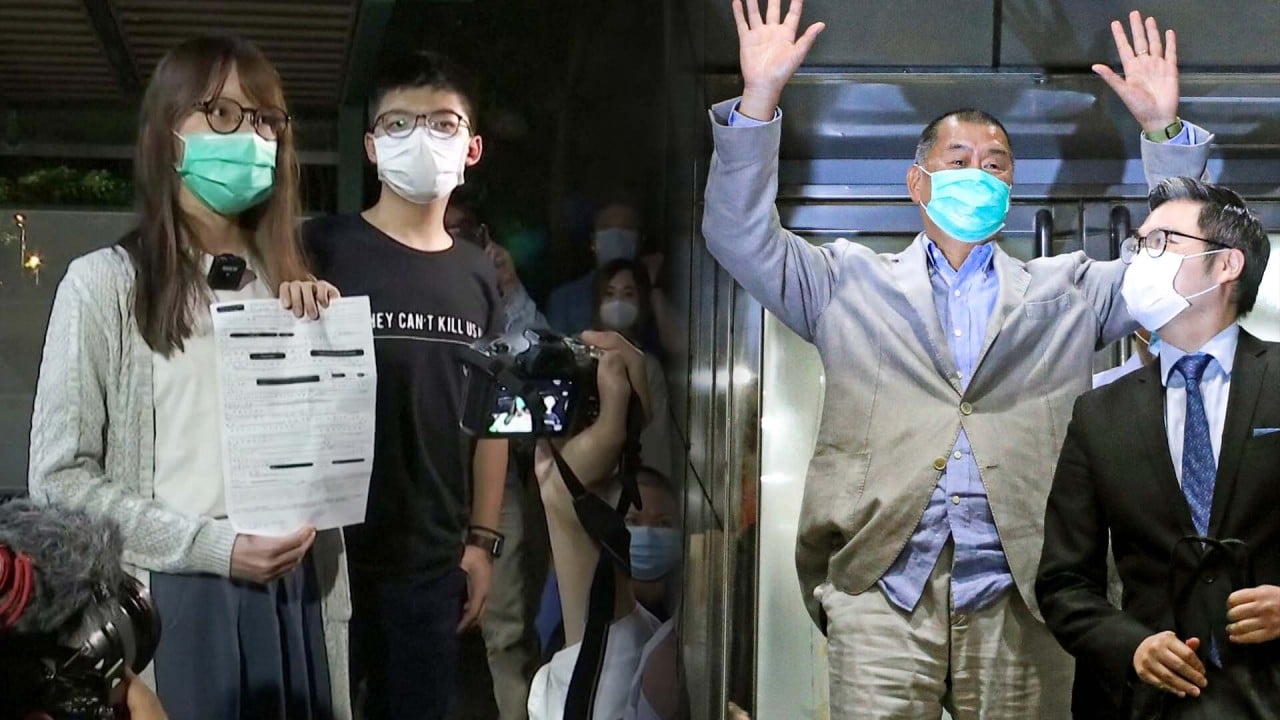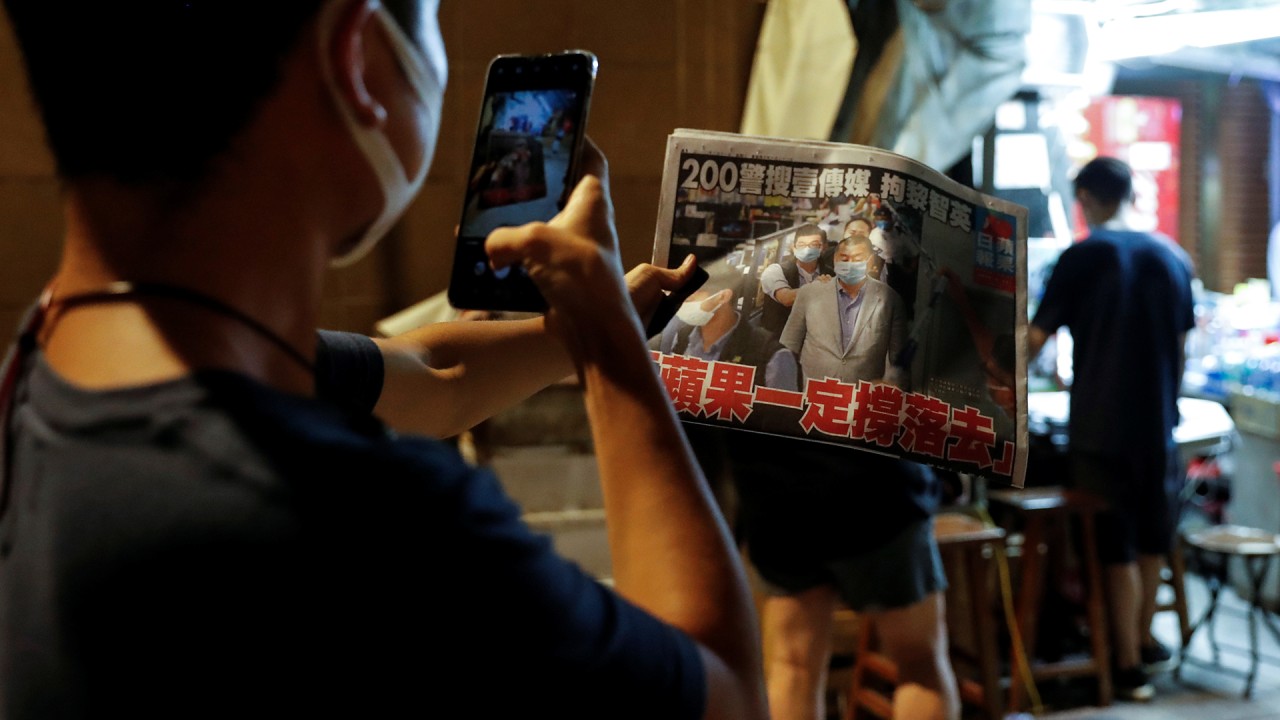
Why the extraordinary Next Digital share price surge after Apple Daily’s Jimmy Lai was arrested?
- The market narratives surrounding the move have been confused, implausible and unconvincing. Rumours of pro-democrat or American support make no sense, given the numbers. Could it be a surge of mainland money in anticipation of a TikTok-style sell-off?
Police Academy, the slapstick film, has a scene with a police officer sitting in a car on patrol, throwing a half-eaten apple core out of his window. It hits a bystander on the back of the head. The bystander immediately turns around and thumps the guy next to him, who in turn belts somebody else. The final scene is of the two officers in their car, oblivious to the riot behind them and the city in flames.
It reminds me of the famous mathematician and meteorologist, Edward Lorenz, who pioneered modern weather forecasting and, with it, modern chaos theory. He saw that a fractional change in the inputs into his weather models, could (virtually) create a catastrophe elsewhere in the world. He titled his 1972 paper, “Does the flap of a butterfly’s wings in Brazil set off a tornado in Texas?”
There is a great visual image of chaos theory on the Wikipedia site. Chaos theory is not randomised carnage but a form of confused order; non-linear bounded instability. This means, roughly, that we know something is going to happen and how it will turn out; for example, that it is going to be warm in summer, or the typhoon season.
But what makes all the difference is where or when. Lorenz described it as, “when the present determines the future, but the approximate present does not approximately determine the future”. That is a marvellous description of the stock market in which forecasting is nowhere near the heady accuracy of predicting the weather.
A 52-week share price range of between 8 and 35 Hong Kong cents would seem fair. Then the boss gets arrested and the share, Next Digital, rose 12 times in two days, from 9 cents to 110 cents, peaking at 196 cents. The company’s market value rose to HK$2.9 billion (US$374 million) from HK$230 million.

03:11
Hong Kong opposition activist Agnes Chow and Apple Daily founder Jimmy Lai released on bail
Giordano tycoon and owner of the Apple Daily newspaper Jimmy Lai Chee-ying might give a wry smile that it is worth getting arrested if your company is going to rise 1,200 per cent in value.
The average 52-week daily volume was 3.4 million shares but the volume on Tuesday was 4.1. billion shares traded, some HK$4.27 billion in turnover, 10 times more than the yearly average, and 19 times greater than the company’s value on Friday night.
The stock market always tells a story – but the single most unusual aspect about the price surge is that we do not know what this one is telling us. The market narratives surrounding this staggering move have been confused, implausible and unconvincing. Imaginative market traders like to know why moves occur because not knowing the underlying reason could cost them money.
The reasons for Next Digital’s move do not seem to fit with either economic or behavioural fundamentals – even herd buying does not easily explain these volumes.

There were rumours that pro-democrats were buying, and plenty of people interviewed said that they were buying shares in support of Lai. Yet that narrative does not pass the credibility test.
Hundreds of thousands of people buying the Apple Daily newspaper is plausible; the same number investing say, HK$10,000 each into the shares seems to be stretching the point, and one big investor splitting his purchases into small bargains could be illegal. The Securities and Futures Commission will be taking a particular interest in the event that any trading misconduct has occurred.

02:22
After arrest of media mogul Jimmy Lai, supporters flock to buy Apple Daily and company shares soar
Some are blaming the “Americans” – and why not, everyone does, and they seem as good a narrative as any. Though why would the US stake maybe US$500 million to drive up a penny stock? Can you imagine the fights over whose budget it would come from?
For such a price surge to be sustainable, the narrative must be plausible and verifiable. If not, Lorenz’s chaos theory suggests that energy will come out of the system and the price will move from the extremes.
Richard Harris is chief executive of Port Shelter Investment and is a veteran investment manager, banker, writer and broadcaster, and financial expert witness

